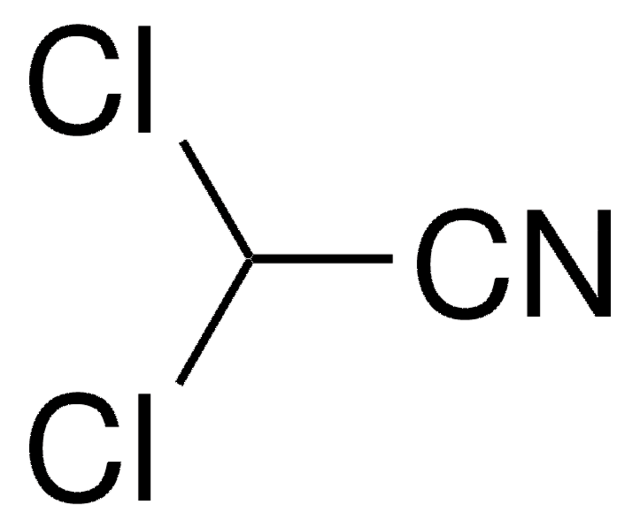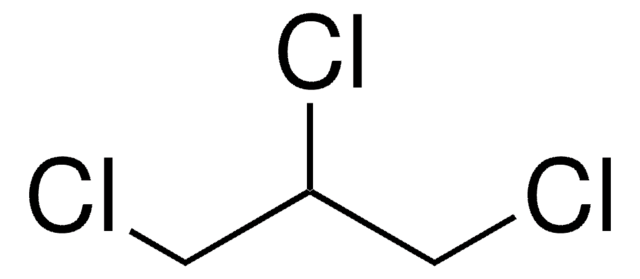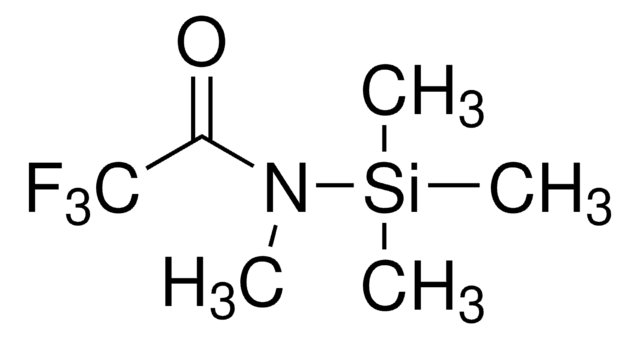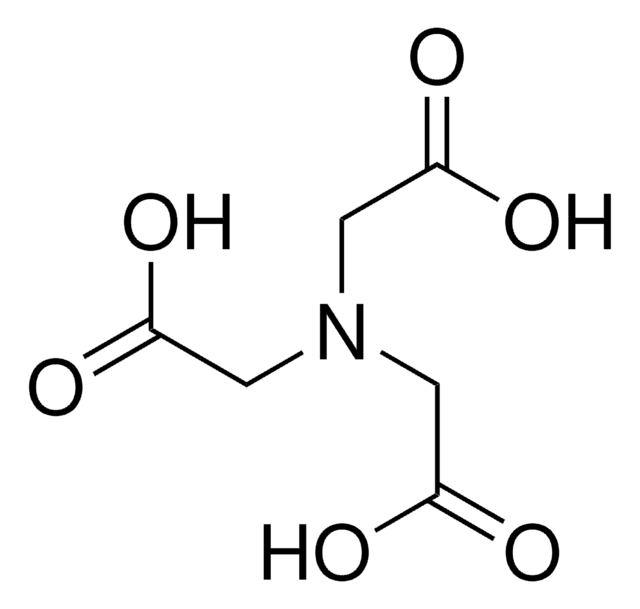About This Item
Recommended Products
grade
analytical standard
Quality Level
Assay
≥90% (GC)
CofA
current certificate can be downloaded
packaging
ampule of 1000 mg
technique(s)
HPLC: suitable
gas chromatography (GC): suitable
refractive index
n20/D 1.539 (lit.)
bp
67-69 °C/24 mmHg (lit.)
density
2.296 g/mL at 25 °C (lit.)
application(s)
environmental
format
neat
storage temp.
2-30°C
SMILES string
BrC(Br)C#N
InChI
1S/C2HBr2N/c3-2(4)1-5/h2H
InChI key
NDSBDLSWTGLNQA-UHFFFAOYSA-N
Looking for similar products? Visit Product Comparison Guide
General description
Application
Signal Word
Danger
Hazard Statements
Precautionary Statements
Hazard Classifications
Acute Tox. 3 Oral - Aquatic Acute 1 - Aquatic Chronic 1 - Carc. 2 - Eye Irrit. 2
Storage Class Code
6.1C - Combustible acute toxic Cat.3 / toxic compounds or compounds which causing chronic effects
WGK
WGK 3
Flash Point(F)
Not applicable
Flash Point(C)
Not applicable
Personal Protective Equipment
Choose from one of the most recent versions:
Already Own This Product?
Find documentation for the products that you have recently purchased in the Document Library.
Customers Also Viewed
Our team of scientists has experience in all areas of research including Life Science, Material Science, Chemical Synthesis, Chromatography, Analytical and many others.
Contact Technical Service













